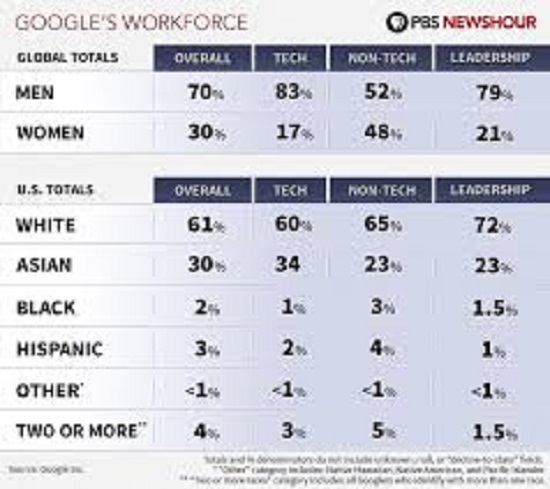Anyone working in Silicon Valley (or reading local newspapers) cannot fail to be personally affected by issues of workplace diversity (at least vicariously). (Actually, anyone reading the Wall Street Journal these days could not avoid seeing the variety of prose on this topic from its chorus of reporters and columnists.) And during the last couple of weeks s/he could scarcely avoid hearing about the 10-page memo written by Google’s James Damore, his subsequent firing, and the furor both locally and nationally. There is a saying in Japanese that “the nail that sticks up is the one that gets pounded down”, and we are sure that he feels very pounded down these days. And his subsequent article published in the Wall Street Journal (in a nice touch the accompanying picture shows him wearing a T-shirt that says “Goolag”) has doubtlessly made Google management feel pounded down, too. (This appears to add insult to the injury already facing Google because the U.S. Department of Labor is already claiming that Google systematically pays women less than men.)
It is no secret that the tech industry in general employs a majority of white or Asian (mainly Indian) men, particularly in technical and leadership roles, which means that Google is no better or worse than other giant tech companies. But when one digs a bit deeper, it turns out that Damore’s belief that women are less capable at writing code than men is incorrect because Indian women CAN code too.
The Wall Street Journal’s Andy Kessler points out that there is limited proof that Google’s mandatory “Unconscious Bias” training has any merit, because of the fallibility of the numerous studies that have supported its inclusion.
Actually, it is meaningless to give OVERALL statistics about percents of male/female or race without also putting them in the context of compensation or managerial level or similar measure, as we have tried to do with the illustration above.


